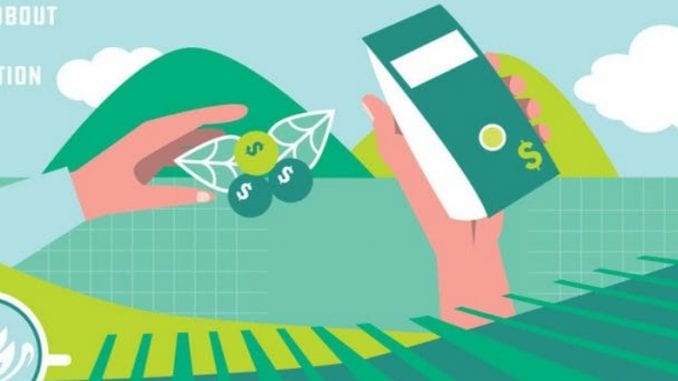
On Sunday, April 13, folks gathered to hear about the Cost of Production, an event hosted by Juniors Roasted Coffee and the BICC.
BY ASHLEY RODRIGUEZ
BARISTA MAGAZINE ONLINE
Photos courtesy of Kristina Jackson
All of the second week of April, during the Specialty Coffee Association (SCA) Expo happening in Boston, folks were talking about the price of coffee. As of this writing, the commodity price for coffee is less than a dollar per pound, which has prompted folks within the industry to ask what they can do.
Caryn and Mike Nelson, cofounders of Junior’s Roasted Coffee and Guilder Cafe in Portland, Ore., wanted to shine a light on the current price crisis—which was the topic of this year’s Re:co, a lecture series highlighting issues in coffee—and created an event series called The Cost of Production. We’ve covered this series before on our website, but it wasn’t until I attended one of their workshops, which was hosted during Expo in partnership with Kristina Jackson and the Boston Intersectional Coffee Collective (BICC) at Night Shift Brewing in Everett, Mass., that I understood just how important this work is and how necessary events like these are.
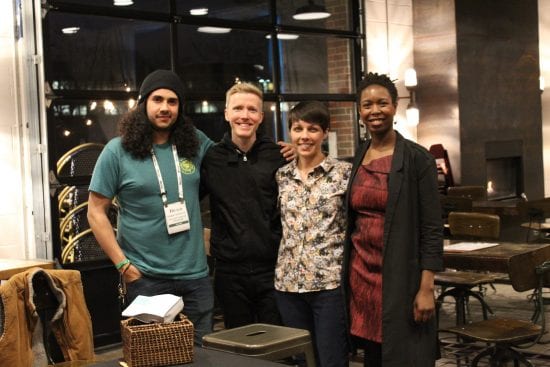
The event opened with a reading of the code of conduct, a requirement for all BICC events. Then, Mike came up and presented a study he did with a farm Junior’s sources from, Santo Tomás Pachuj operated by Andres Fahsen in Guatemala.
For a concept like coffee production costs, Mike and Andres aimed at figuring out a tangible number—an actual dollar amount that it costs to produce one pound of coffee. Together, they came up with $2.87/pound. Mike noted that this price did not consider cost of living or any sort of premium for quality; this was the base price of producing a pound of coffee.
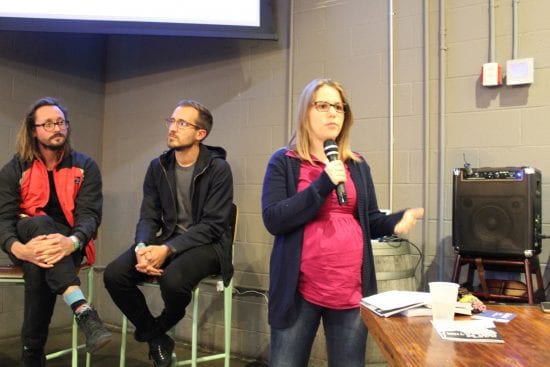
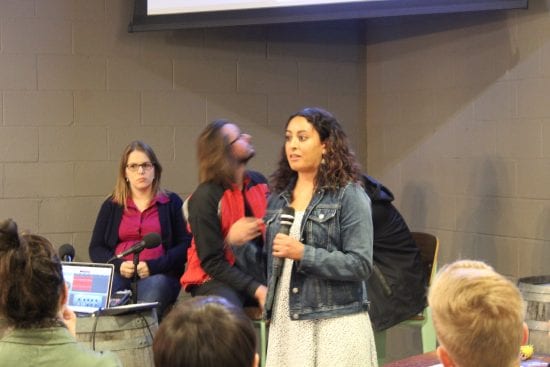
Afterward, Mike presented different strategies to communicate the disparity in coffee prices and cost of production to consumers. Along with staff training and marketing, Mike and Caryn try to think out of the box, using methods like changing the WiFi password of their café to “ask me about the cost of production,” or printing the cost of production on their retail bags. “We want to get across to people that there is a problem,” Mike said.
After Mike’s presentation, Kristina Jackson of the BICC invited members of the local coffee community and importers to talk about their place in the cost of production. Tyler Youngblood and Federico Bobbio of Azahar Coffee in Colombia presented charts showing not just the cost of production, but what it would cost in different regions of Colombia to pay farmers at the poverty line, at the minimum wage line, and at a price that considers minimum wage plus benefits. “Once you know what it takes to get a farmer to at least the poverty line, you can’t ignore what you have to pay,” they said.
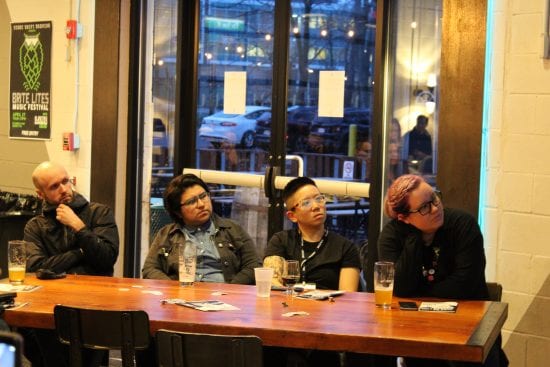
Then, Ana Cristina Guirola de Salazar of Terra Negra Trade Company took the stage. Ana was instrumental in helping Junior’s launch their cost of production study, and was the importer that brought Andres’ coffee to Junior’s. Along with figuring out how much it cost Andres to produce his coffee, Ana is helping Junior’s create a template that other farmers and importers can use to document production costs and to determine how much a coffee should be sold for.
After, Stephanie Alcala, the sustainability supervisor for Tartine Manufactory, presented on how Tartine thinks about buying and selling coffee. The team created a multi-faceted metric to determine partnerships and how they would move forward with building and sustaining relationships with farmers. Lastly, Aaron MacDougall of Broadsheet Coffee in Boston talked about the challenges of pricing and selling expensive coffee as a retailer, and how to keep fighting on even when folks might bat an eye at the cost you’re selling coffee. “People just assume that the market is right,” he said, noting how difficult it can be to change minds, “that the C market is right.”
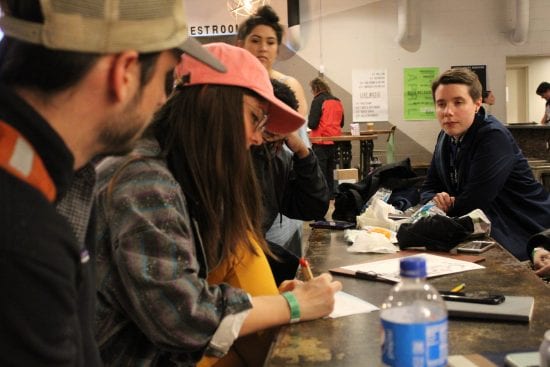

Attendees then got into roundtable discussions and talked about ways they could address the problem of price. Transparency was a huge topic a number of groups mentioned, along with acknowledging your place as a consumer and making informed decisions and demands from the people we buy coffee from. Attendees were then given a comic book (one of the innovative ways Caryn and Mike decided to communicate the cost of production to consumers) and were encouraged to share their takeaways and ideas with others.
You can read more about The Cost of Production initiative here, and keep an eye out for more events soon!

